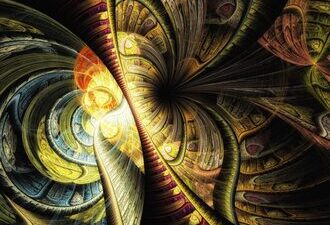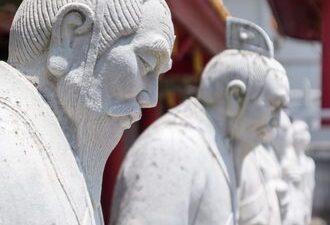
Articles
17 Articles
- Near-Death Experience Veridicality Research in Hospitals
- Science and Spirituality
- Key NDE Studies From 1975 Through 2021
- The Founding of IANDS and the Importance of NDE Research
- Can Science Explain the Near-Death Experience?
- A Chat About Near-Death Experiences With an Artificial Intelligence Robot
- Near-Death Experiences: Physical Causation Or Not?
- Dying Brain Scan Reveals Life May Flash Before Your Eyes
- Science and the Near-Death Experience
- Why Near-Death Experiences Are Different
- A Theory Accounting for the Occurrence of All NDEs
- The Survivalist Interpretation of Recent Studies into the NDE
- The Science of Life Discovered From Lynnclaire Dennis’ NDE
- It’s Time for Volunteer “Flatliner” Near-Death Experiments!
- A Critique of Susan Blackmore’s Dying Brain Hypothesis
- Are NDEs of the Brain or Mind or Both?
- Scientific Theories of the Near-Death Experience

Evidence of the Afterlife
18 Articles
- A Study of Visual Perception During NDE Out-of-Body Experience
- Nearing Death Awareness as Evidence of an Afterlife
- People With Severe Mental Disability Become Normal Before Death
- Do Any NDEs Provide Evidence of an Afterlife?
- People See Dead Persons Not Known To Have Died
- Some People Were Dead For Several Days
- Some People Receive Verified Visions of the Future
- Scientific Discoveries Come From Near-Death Experiences
- People See Verified Events While Out-Of-Body
- People Having NDEs are Convinced They Are Real
- People Have Near-Death Experiences While Brain Dead
- People Can Experience Someone Else’s Near-Death Experience
- People Born Blind Can See During a Near-Death Experience
- People are Dramatically Changed by Near-Death Experiences
- Near-Death Experiences Have Been Known Throughout History
- Common Elements are Found in Near-Death Experiences
- Children Have Similar Near-Death Experiences as Adults
- Scientific Evidence Supporting Near-Death Experiences and the Afterlife

Hallucinations and NDEs
10 Articles
- Paradise is Paradise: Reflections on Psychedelic Drugs, Mystical Experience and the Near-Death Experience
- Steve Taylor, DMT and Near-Death Experiences
- Why Near-Death Experiences Are Not Hallucinations
- Timothy Leary, LSD and Near-Death Experiences
- Naina’s LSD Near-Death Experience
- MaryJane Escobar’s Drug Triggered Near-Death Experience
- Larry Hagman’s LSD Near-Death Experience
- Karl Jansen, Ketamine and Near-Death Experiences
- Joseph Kerrick’s LSD Near-Death Experience
- Albert Hints’ Ecstasy Near-Death Experience

NDE Experts
10 Articles
- Dr. Harold Widdison and Dr. Craig Lundahl’s Near-Death Experience Research
- Dr. Susan Blackmore’s Near-Death Experience Research
- Dr. Raymond Moody’s Near-Death Experience Research
- P.M.H. Atwater’s Near-Death Experience Research
- Nora Spurgin’s Near-Death Experience Research
- Dr. Melvin Morse’s Near-Death Experience Research
- Dr. Kenneth Ring’s Near-Death Experience Research
- Dr. Elisabeth Kubler-Ross’ Near-Death Experience Research
- Barbara Harris Whitfield’s Near-Death Experience
- Dr. Barbara Rommer’s Negative Near-Death Experience Research

NDE Research Conclusions
24 Articles
- The Higher Self and the Near-Death Experience
- Love and the Near-Death Experience
- Veridical Perception and the Near-Death Experience
- Consciousness Expansion and the Near-Death Experience
- Told “You’re Not Ready” and the Near-Death Experience
- War, Evil and the Near-Death Experience
- The Void and the Near-Death Experience
- The Tunnel and the Near-Death Experience
- The Temple of Knowledge and the Near-Death Experience
- Spirituality and the Near-Death Experience
- Soul, Spirit and the Near-Death Experience
- Pre-Existence and the Near-Death Experience
- Music and the Near-Death Experience
- Life and the Near-Death Experience
- The Life Review and the Near-Death Experience
- Humanity and the Near-Death Experience
- Homecoming and the Near-Death Experience
- Hell and the Near-Death Experience
- Heaven and the Near-Death Experience
- God and the Near-Death Experience
- Forgotten Knowledge and the Near-Death Experience
- Earth and the Near-Death Experience
- Death and the Near-Death Experience
- The City of Light and the Near-Death Experience

Quantum Physics and NDEs
10 Articles
- Quantum Entanglement and the Near-Death Experience
- NDEs and Einstein’s Theory of Relativity
- Near-Death Experiences and Physics
- The Holographic Universe Supports Near-Death Experiences
- Near-Death Experience of Space, Time, and Consciousness
- Quantum Theory Supports Near-Death Experiences
- Sex, Drugs, NDEs and Quantum Physics
- How the New Physics is Validating Near-Death Concepts
- Lessons From Near-Death Experiences About the Fourth Dimension
- Near-Death Experience and Quantum Physics Research
